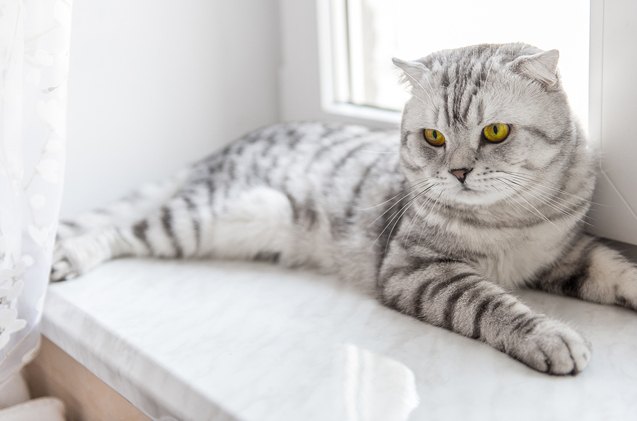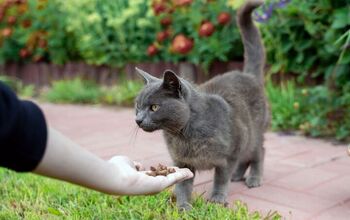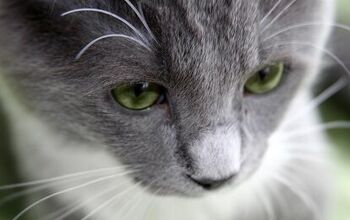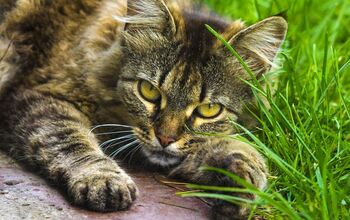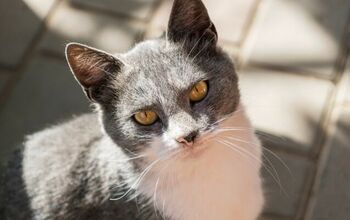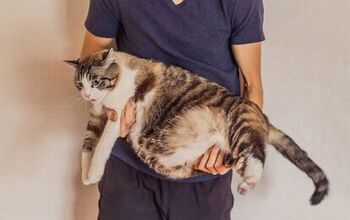What You Should Know About Feline Pancreatitis

Pancreatitis occurs when a cat’s pancreas becomes inflamed. This organ plays a vital role in the digestion of foods through the production of enzymes. If the pancreas is inflamed, the enzymes can’t flow into the digestive tract freely, leading to disease.
Pancreatitis needs to be treated promptly by a vet, so if you begin to notice any of its symptoms, it’s necessary to have your pet examined as soon as possible.
What Happens When Pancreatitis Occurs?
When the pancreas isn’t inflamed, the digestive enzymes that it produces don’t come into contact with pancreatic tissue. Instead, the enzymes remain inactive until they’ve moved into the small intestine. However, when these enzymes get to work too soon, when they are still within the pancreas, they could start eating away at the organ because it’s made up of protein, fat, and carbohydrate. This leads to pancreatitis, which can affect cats of all breeds and ages.
Related: 5 Feline Skin Conditions You Should Know About
What Are the Symptoms of Pancreatitis?
Some of the common symptoms that are associated with pancreatitis include low body temperature, dehydration, anorexia, and lethargy. There typically is not any vomiting, and there typically is not any obvious indication of abdominal pain, but a cat will lie around not wanting to eat and feeling very lethargic. Cats may also be jaundiced or have excess abdominal fluid.
If you have a cat who normally has a healthy appetite but suddenly doesn’t want to eat, even if it’s just for one day, you should contact your veterinarian, especially if there is lethargy and an unwillingness to start eating again within one or two days.
Related: 3 Veterinary Tests That Every New Cat Should Get
Because the symptoms of this disease are also symptoms associated with other feline conditions, a proper examination is necessary for the correct diagnosis.
What Is the Treatment for Pancreatitis?
Once your vet has thoroughly examined your cat and diagnosed his condition as pancreatitis, the proper treatment will need to be administered promptly. The vet may order fluid therapy, tube feeding, medications for nausea and vomiting if they’re present, plasma transfusions, antibiotics, and pain relief medications or corticosteroids. And if there is a blockage that’s causing the inflammation, or if there is severely damaged tissue or large accumulations of fluid, your vet may need to do surgery.
What About Nutrition’s Impact on Pancreatitis?
Many felines who have pancreatic illness will also have inflammation within the gastrointestinal tract.
Inflammatory bowel disease, gastritis, enteritis, and colitis are a few examples of gastrointestinal issues that may be the result of food allergies that could occur from feeding your cat a commercial diet that contains allergenic ingredients without any natural enzymes.
Also, feeding the same protein every day may result in an allergy to that protein source, and foods that contain a high number of carbohydrates might tax the pancreas by creating the need for higher levels of insulin.
The pancreas is used to aid digestion, but when a cat’s gastrointestinal tract is inflamed, the organ has to work even harder to create enough digestive enzymes that the intestines can use. Feed cats a high quality, grain-free diet, and supplementing with digestive enzymes and probiotics to assist digestion.
Are There Ways to Prevent Pancreatitis?
Pancreatitis can be acute or chronic, and it can recur. Also, preventative measures may not guarantee that your kitty will never develop this type of inflammation. However, keeping your cat at a healthy weight is a good idea for many reasons, one of which is helping to prevent pancreatitis. Also, talk to your vet before giving medications to your pet, as some of them might increase inflammation and lead to pancreatitis.
Being aware of what pancreatitis is will help you as a cat owner. If you notice symptoms associated with this disease, such as fever, loss of appetite, sluggishness, and vomiting, have your cat examined by a vet, as this condition could be fatal.

Lisa Selvaggio is a freelance writer and editor, and our resident cats-pert, with certifications in pet nutrition and pet first aid. She enjoys producing content that helps people understand animals better so they can give their pets a safe and happy home.
More by Lisa Selvaggio



